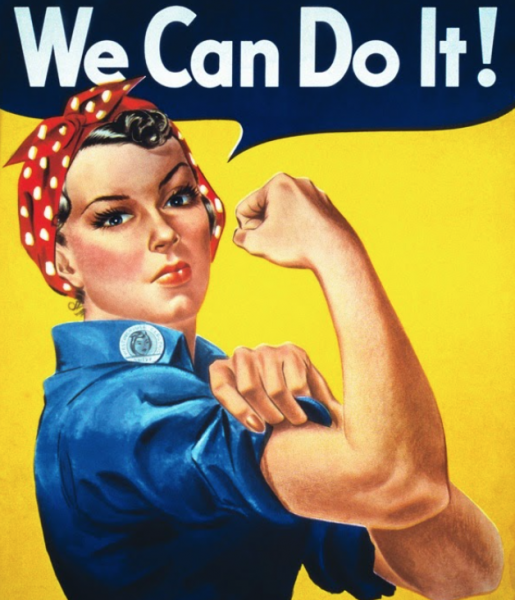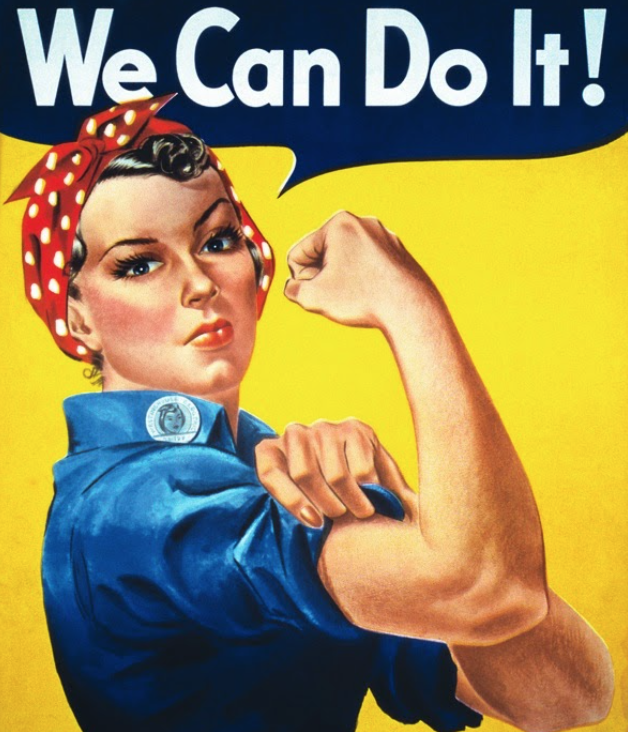
I can remember many years ago being told my one of my senior academic colleagues that I should not be so impatient for women’s equality – that it would come, but probably take about 25 years.
Well, 25 years has been and gone and progress have been sporadic and regression all too common. In particular, men are still mostly in charge of things. In the private sector and the state, most CEOs are men, most board chairs are men and most of the voices heard are males.
This is not because of a lack of good women. Nor is it that men are inherently better at leadership (there have been enough recent botch-ups to remind us that while blokes may be good at getting positions, this does not guarantee good performance in the role).
But there is little doubt that unconscious sexism is strong in New Zealand. That, basically, when people are looking around for leaders they tend to think of men.
As a member of the Council of the Royal Society Te Apārangi, I have been involved over the past couple of years in a series of strategies to overcome unconscious bias and bring into the hallowed halls a lot more woman and Māori. It is hard work and sometimes has to be achieved against opposition. However, the determination of that agency to move forward is now reaping significant rewards.
The notion that if we just sit back and do nothing, equality will come, is now discredited, and new strategies are needed.
I have been thinking about the new government. I reckon they need to get on board with a systematic and pro-active diversity project of their own. There has been progress in recent years, but too much tendency to think that 30% or 40% of women constitutes equality.
I think there needs to be a filters through which Cabinet views all appointments. It should be called: “Women hold up half the sky”. The rules should be as follows:
- In order to foster gender equality throughout society, Cabinet will recognise that active processes need to be put in place to support women into high positions throughout the land.
- This may at times mean using a range of means to search for appropriate women.
- The goal of this filter is to overcome any remaining unconscious bias and take a step further towards the goal of gender equity in New Zealand.
- The tendency to ‘think only of men’ in leadership needs to be monitored and overcome.
- One in every two leadership positions in the state sector should be held by women, and a range of strategies adopted to ensure that suitable women are found to fill these positions (the Ministry of Women is in a good position to run such strategies).
- One in every two board appointments made by Cabinet should go to a woman, including and especially at the leadership (chair and deputy chair) level.
- When working with agencies, the government should make it clear that any government funded services and programmes should work through the same gender awareness filter as Cabinet.
- The overall ethos should be that, where there is one position, women should be equally likely to be appointed, and where there are two one will be a woman.
Such a policy will of course have detractors, but most women and many men (probably most men) will support it. The most common argument we have heard in the Royal Society is that women promoted under this kind of process will be seen as second-class citizens. This assumes that, currently, the best person for the job always gets the job. Given the number of leadership disasters experienced in New Zealand recently (some publicised and some not), this is clearly not true.
It is likely that a ‘half the sky’ strategy will quickly become normal practice and barriers fall to women’s appointments. It will also attract women who have never put their names forward before but have plenty to offer state sector boards and agencies.
We are still waiting for equality for women. Statistics for woman in terms of incomes, leadership and other indicators of equality are sadly skewed. This government, headed by the new generation Jacinda Ardern, has the power to make a step change for women.
I want to acknowledge the tangata whenua, and that the Māori I see in leadership positions are often hugely overworked and in demand on boards, and then forced to work alone to lead cultural policies and programmes within their organisations. Solutions must be sought for this problem, too, and must revolve around training up the younger generation (and a wider range of social and economic strategies as well). Setting targets cannot work unless they are achievable, and more work needs to be done to enlarge the pool of Māori.
Like a big birthday gift, the pool of women’s talent already sits out there, waiting for a wise government to recognise it and act. I reckon we can make progress now, and that a public service where gender equity is truly embedded can be a firm legacy of this government.
Dr Liz Gordon began her working life as a university lecturer at Massey and the Canterbury universities. She spent six years as an Alliance MP, before starting her own research company, Pukeko Research. Her work is in the fields of justice, law, education and sociology (poverty and inequality). She is the president of Pillars, a charity that works for the children of prisoners, a prison volunteer, and is on the board of several other organisations. Her mission is to see New Zealand freed from the shackles of neo-liberalism before she dies (hopefully well before!).






“In the private sector and the state, most CEOs are men, most board chairs are men and most of the voices heard are males.”
They are also overwhelmingly *old*. In comparison, the majority of uni graduates in NZ have been women for years now, and when I attended my daughter’s high school prize-giving the majority of those receiving awards were female. As old men die and are replaced in corporate leadership positions, they will increasingly be replaced by women.
I don’t have a problem with that, but people who think the policy that CEOs and boards produce will magically become more progressive because those people don’t have penises are delusional. Counter-evidence: Thatcher, Richardson, Shipley, Pauline Hanson, Angela Merkel, Helen Clark (foreshore and seabed, Operate 8, Search and Surveillance Bill etc), Paula Bennett, Judith Collins, Anne Tolley etc etc etc.
What really needs to change is the inherently patriarchal practice of giving massive decision-making power to tiny elites, not rearranging the genitals on the Titanic.
Are you sure sufficient women have what it takes for the top jobs?
Are the career choices, lifestyle choices and psychology profiles of women going to promote enough of them into top jobs? Or will there always just be a few angry female eunuchs in top roles denying their genetics?
In a free enterprise scenario you either have the choice of believing there is a massive male conspiracy going on or that most women aren’t what most owners / shareholders want running their companies. Sure they’re prepared to accommodate sufficient women to look good in the annual report and thereby appease the fringe whiners. But in leadership positions? Mostly not.
Life isn’t fair and we need to get over that fact. For example tall people statistically have a far greater chance of promotion: Our mammalian impulses favour the tall, impressive male. That factor alone could account for the current differences.
Also the IQ of women, whilst similar on average to men, tends to be more closely grouped around the mean – in other words women are mostly more average. (A smaller sigma value if you want to be fancy). The result is that men population both the board rooms and the prisons for our sins, while women more often take on mediocre roles in teaching nursing and administration.
You and me baby – we’re just mammals. Accept it.
“Are you sure sufficient women have what it takes for the top jobs?” No they’re not.
Waiting for the perfect conditions to start equality never emerges.
Starting now creates the perfect conditions.
“You and me baby – we’re just mammals. Accept it.”
Your ancestors may not have evolved since they parted ways with the chimps Andrew, but don’t presume to speak for me. There’s plenty of research evidence that men interviewing for senior positions will tend to pick a man over a woman, even if the woman has a stronger CV. It’s not a conspiracy (at least not usually), it’s just implicit bias at work.
The resulting lack of gender balance is unjust, and it does need to be addressed. I doubt you’ll be so philosophical about it if you’re still alive in 20 years, by which time it could be women holding the majority of leadership positions, and men who are held back from positions they deserve due to gendered prejudice.
Very weak comparison, Apples with Peaches.
A CV is talking about the past, the interview targets the future.
A “strong” CV may help to get an interview invitation. But in that interview the competence will be checked, rather than the CV.
Because we all know how easy it is to get a good written reference although you are high performer in your own imagination only and were actually recommended to “move on”, by a bad boss that does not understand your true value, of course.
Considering that, STRYPEY, you may think again whether you argument pro women quota might be actually an argument contra.
Btw.: “There’s plenty of research evidence that…”.
Yes, of course. As there is for all kinds of idea, disregarding their actual distance from academic understanding of science and “evidence”. Causality, coincidence and correlation, you know.
Yes all very true however, I’ve met many men who are total bores, but I’ve yet to meet a woman who, well what can I say.
Comments are closed.